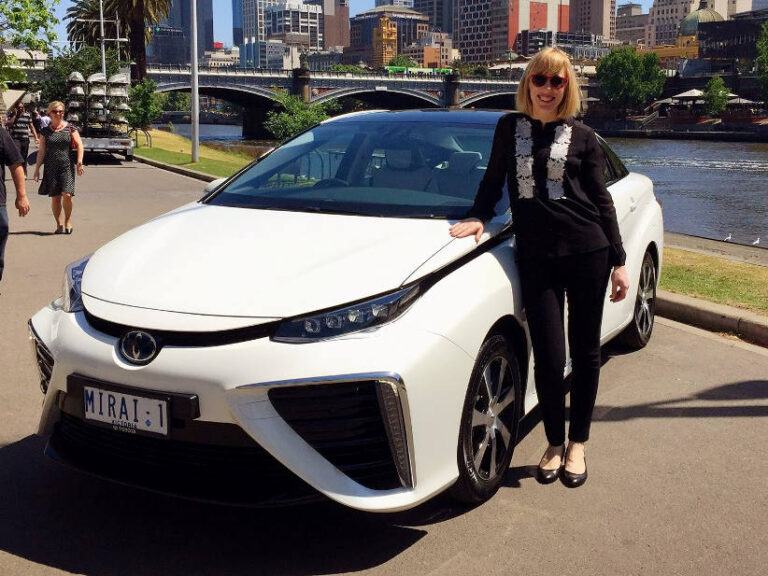– By Caroline Falls –
A new industry body – Hydrogen Mobility Australia — has been set up to promote and support the introduction of hydrogen-cell fueled fleet vehicles.
“Our vision is a hydrogen society for Australia built upon clean and renewable energy technology, including hydrogen powered transport,” Hydrogen Mobility Australia, or HMA, said in a media release announcing its establishment. “To achieve this HMA will work to accelerate the commercialisation of new hydrogen and fuel-cell technologies across the entire hydrogen value chain, including production export and storage.”
Foundation members of the group include vehicle makers Toyota and Hyundai, both with hydrogen-powered vehicles. Toyota has the Mirai model and Hyundai has the NEXO (and the ix35 which was launched by Hyundai Australia in 2015).
Other members include hydrogen technology supplier Siemens, big oil groups Caltex, BP and Viva Energy; hydrogen gas suppliers BOC, Coregas and ITM power; and commercial and agricultural equipment supplier CNH Industrial.
The establishment of Hydrogen Mobility Australia follows some 18 months of talks among members and comes as three hydrogen-fuel-cell projects are underway in the Australian government sector, HMA’s CEO Claire Johnson told Fleet Auto News.
The South Australian state government has developed a hydrogen road map and has plans to run hydrogen-fueled buses; Victoria-based Moreland City Council will be converting a fleet of garbage trucks to hydrogen; and the ACT government is set to introduce a fleet of 20 Hyundai Nexo later this year.
Other commitments already made to hydrogen fuel include those from the CSIRO and ARENA (Australian Renewable Energy Agency), which have each committed to prioritizing the export of renewable energy in the form of hydrogen.
“These commitments demonstrate that hydrogen is set to play a growing role in the renewable energy space,” HMA said in a statement.
Federal government initiatives to reduce vehicle carbon emissions will also play a positive role in the future for hydrogen powered transport in Australia, HMA said.
Johnson said that the ability of hydrogen-fuel-cell powered vehicles to traverse large distances — as much as 800 kilometres – before needing a refuel make it a great alternative to electric vehicles, particularly in the commercial sector in Australia.
In addition, a benefit of hydrogen technology is that it takes about the same amount of time to refuel a vehicle as it does a petrol or diesel-powered vehicle – three to five minutes, compared with an electric vehicle that takes anywhere from 45 minutes to overnight to recharge.






